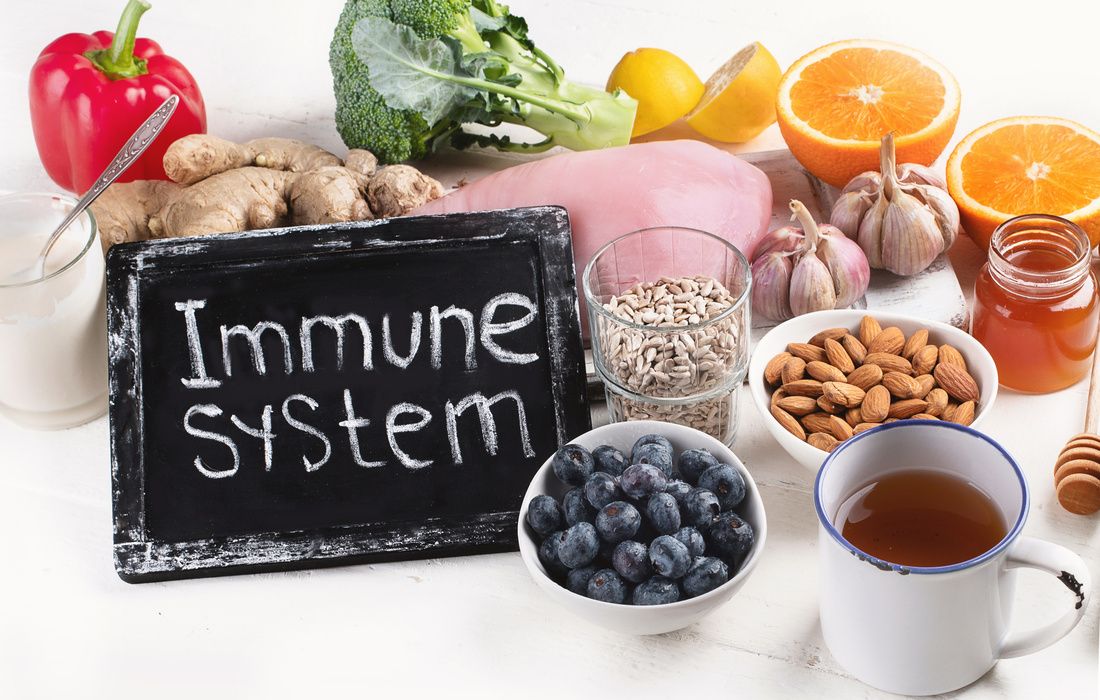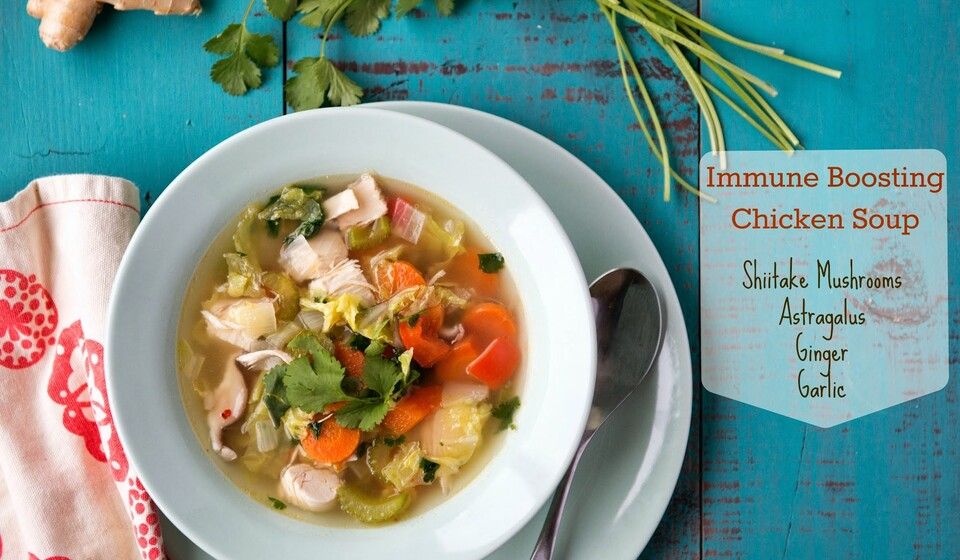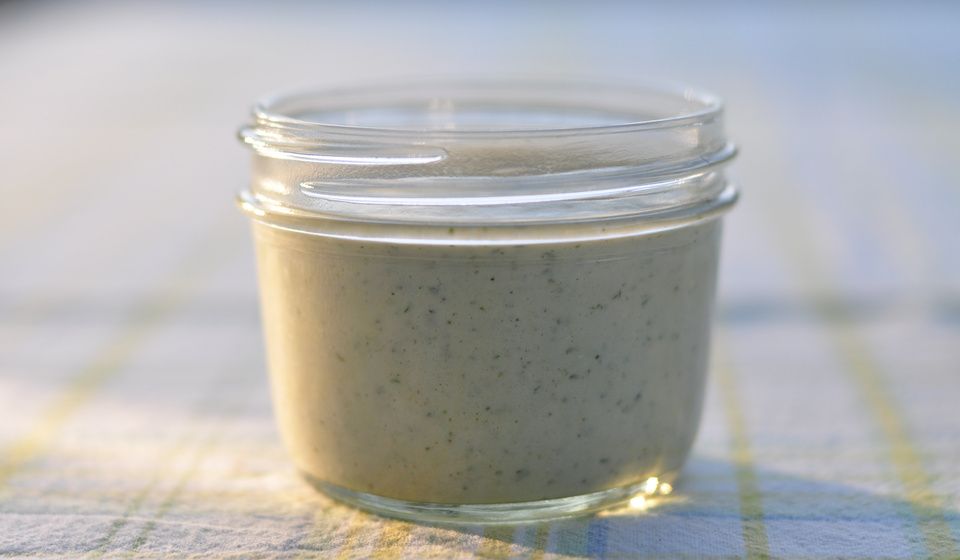12 Tips to Support your Immune System During Cold and Flu Season
Ali Segersten Nov 28, 2023 1 comment
Cold and flu season is upon us! How can you support your immune system so it can function at its best? Your immune cells, like all other cells, require good nutrition and lifestyle habits to function properly. A nourishing whole foods diet, strong digestive system, good sleep practices, good hydration, blood sugar control, and the addition of supportive nutritional supplements all work together to promote a strong and functional immune system.
Your requirement for nutrients goes up during cold and flu season! This is because we are continually getting exposed to bacteria and viruses that our immune systems need to respond to. You may not even realize you are fighting off an infection if your immune system is functioning well and removing the unwanted pathogen. However, large amounts of nutrients are needed to run your immune cells so they can do their jobs. During cold and flu season, there is an increased need for these nutrients.
Below you’ll find a brief overview of the key components for supporting your immune system during cold and flu season.
12 Tips for Supporting your Immune System:
1. Control Blood Sugar:
Reduce or eliminate sugar in your diet! A diet high in refined sugar and carbohydrates can keep blood sugar levels elevated. Consistently elevated blood sugar suppresses the immune system so it can’t properly fight off invading bacteria and viruses. Sugar does this by slowing down white blood cells. For example, if your white blood cells can’t immediately respond to a virus that’s invading your cells, that virus will quickly replicate and become a full-blown illness that may knock you out for many days or even weeks. Start your day with a low-carb, high-protein, high-fat breakfast and see how you feel for the rest of the day. This is a great way to prevent a blood sugar roller coaster that can result from a high-glycemic breakfast. If you are a Nourishing Meals member, use the Search page and plug in Low-Carbohydrate + Breakfasts to find high-protein breakfast recipes.
2. Sleep:
Sleep deprivation suppresses immune function. In fact, it is difficult to produce enough natural killer cells and antibodies when you are sleep deprived! Additionally, sleep deprivation increases cortisol; chronically elevated cortisol will also suppress immune function. Sleep is critical to keeping your immune system functioning at its best. Slow down, rest, and practice good sleep hygiene at night by doing things like keeping all blue-spectrum lights in your home off or wearing blue-light blocking glasses. Don’t eat large meals in the evening, or, instead, eat dinner early. Go to sleep by 9 or 10pm and get early morning sunlight to help your body attune to a natural circadian rhythm.
3. Protein:
Immune cells are one of the types of cells in the human body with rapid turnover. Large amounts of amino acids are needed to make immune cells! Amino acids are found in protein, and in order to break down protein into amino acids your digestive system needs to be functioning properly! This means that you need to have adequate stomach acid and enzyme production to get amino acids from your food. Certain drugs, stress, trauma, low thyroid hormone or hypothyroidism can all cause low stomach acid, which in turn can contribute to amino acid deficiencies. It may be important to supplement your stomach acid with something called betaine HCL in order to properly break down proteins and absorb micronutrients such as B12, calcium, and iron. You may want to consider working with a health care practitioner to assess digestive functioning. If you take betaine HCL and feel an increased burning sensation in your stomach, then you probably don’t need this supplement; a basic digestive enzyme may be all that is needed. High-quality eggs, seafood, and meats; legumes; and nuts and seeds are all good sources of amino acids. An amino acid supplement may also be helpful, depending on the state of your health and digestive capacity.
4. Vitamin D:
Vitamin D is more like a hormone rather than a vitamin. We make vitamin D after exposure to sunlight; however, you can only do this from about April through October if you live above the 35th parallel in the northern hemisphere. We have receptors on our cells, called VDR receptors. Once vitamin D gets inside a cell it regulates the expression of over 900 genes! Vitamin D deficiency is associated with an increased susceptibility to infection as well as autoimmunity. Vitamin D is a powerful modulator in both immune responses—the first line of defense, called the innate immune system, and the adaptive immune system that creates memory (antibodies) to pathogens. Vitamin D can rev up and dampen down immune functions so that everything runs smoothly—you don’t want to under-respond (immune suppression) or over-respond (excessive inflammation) to pathogens. Vitamin D keeps your immune system balanced so it functions how it needs to! Without adequate vitamin D, you may find yourself getting sick frequently, or unable to get over an infection quickly. Vitamin D works in conjunction with all other nutrients to support the immune system. Supplementation of vitamin D in the fall and winter is usually required to keep vitamin D levels at optimal levels in the body.
5. Vitamin A:
Vitamin A is stored in your epithelial tissues, reproductive system, and eyes. Vitamin A supports immune function in your mucous membranes and is needed to fend off respiratory transmitted viruses and bacteria. Without adequate vitamin A in our epithelial tissues, we have an increased susceptibility to infections. Vitamin A supplementation can be toxic in large doses; therefore, it is important to consider nutrient testing before regularly supplementing with this fat-soluble vitamin. However, short-term supplementation at lower doses may be beneficial during cold and flu season. Vitamin A is found in both animal and fish liver, as well as egg yolks, pastured butter, and milk. Vitamin A can also be made in the body by converting carotenes to preformed vitamin A. This process involves zinc, so be sure to be consuming enough zinc if you do not consume sources of preformed vitamin A, which can only be found in animal foods. Foods high in carotenes include dark leafy greens like collards, kale, mustard greens, parsley, dandelion greens, and spinach. Other excellent sources of carotenes include winter squash, dried apricots, sweet potatoes, carrots, mangoes, and other orange and yellow vegetables.
6. Vitamin C:
Your non-specific immune cells—the first line of defense that occurs within minutes and hours of pathogen detection—requires vitamin C for many of its functions. Vitamin C is also needed to mop up the inflammatory chemicals created during these processes. Without enough antioxidant support to help clean up the mess, you’ll feel the effects of increased inflammation—pain, chronic fatigue, moodiness, and brain fog. Vitamin C needs to be consumed continuously to see a benefit. Raw fruits and vegetables are full of vitamin C! Strawberries, papaya, citrus fruits, pineapple, and kiwis are particularly high in vitamin C, however, bell peppers, brussels sprouts, and broccoli are higher in vitamin C than most fruits! You just need to eat them in their raw form to get the benefit, as vitamin C is easily destroyed by heat. Another important function of vitamin C is to replenish the oxidized form of vitamin E. Meaning, when vitamin E is used as an antioxidant and becomes a “vitamin E radical,” vitamin C can come in and restore vitamin E to its normal antioxidant state. Try my Citrus-Ginger Immunity Shots to increase vitamin C and citrus bioflavonoids.
7. Vitamin E:
Cell membranes are made of phospholipids and are very susceptible to damage from free radicals. Vitamin E works as an antioxidant to protect cell membranes from damage. Cells of the immune system, specifically phagocytic cells, need to have adequate levels of vitamin E stored within them to protect against oxidation. These types of immune cells produce large amounts of reactive oxygen species (free radicals) to “poke holes” into invading pathogens. Therefore, to protect themselves from their own free radicals, they need vitamin E stored within the cell membranes to keep themselves alive and functioning. Vitamin E is a very common nutrient deficiency! It may be a good idea to use a supplement (talk to your health care provider about purchasing a high-quality natural vitamin E supplement, as they are not all created equal). The best food source of vitamin E is sunflower seeds! Other excellent sources include almonds, unrefined sesame oil, peanuts, extra virgin olive oil, and peanut butter. Try this delicious herbed sunflower seed salad dressing made from soaked, raw sunflower seeds!
8. Methyl Donors:
Cells with rapid turnover, such as immune cells, need methylation and methyl donors for cell differentiation and function. Folates found in dark leafy greens and legumes, B12 found in animal-based foods, and betaine found in beets, shrimp, and crab all work together to make the methylation cycle run smoothly. If you have genetic mutations that greatly reduce forming the active, methylated forms of folate and B12, then you may consider supplemental support using the methylated forms of both B12 and folate. Methylation also requires B2, B6, magnesium, and zinc! This is why consuming nutrient-dense foods daily and taking supplements when needed is so important.
9. Zinc:
Viruses need the cells in your body to replicate. Once a virus enters your cell, it hijacks its machinery and uses the cell as a virus-replicating machine. What stops this process inside the cell? Zinc! However, zinc often doesn’t easily enter cells. Certain phytonutrients in plant foods help zinc enter the cell! Quercetin (found in apple skins and onions) and green tea extract (EGCG) are two plant chemicals that do this beautifully. Zinc is also needed for protein and DNA synthesis. It only takes a few weeks of eating a low-zinc diet to reduce immune function! Which foods are high in zinc? Oysters, pasture-raised beef, and lamb are the highest food sources of zinc. Pumpkin seeds, lentils, turkey, and chickpeas are also very good sources. Inflammatory bowel disease and very poor gut health can impair zinc absorption, so it is very important to work on improving gut health to be able to absorb zinc. Additionally, zinc from plant foods is typically not as absorbable as zinc from animal foods.
10. Selenium:
Selenium is an important mineral that is needed for antioxidant functions in the body. Selenium and glutathione work together to create a group of enzymes called glutathione peroxidases, which are critical for reducing cellular oxidative stress (reducing free radicals inside our cells). Selenium-containing enzymes also recycle vitamin C from its oxidized form (used form) back into its reduced form (active antioxidant form). Proper thyroid function is dependent on selenium as it is needed to transform T4 (less active thyroid hormone) into T3 (the more active form of thyroid hormone). Remember, thyroid hormone is needed to stimulate stomach acid production, and adequate stomach acid is the first step in breaking down your food so you can utilize all of the micro and macro nutrients you consume! Selenium can be found in brazil nuts, as well as seafood and meats.
11. Medicinal Mushrooms:
Shiitake, reishi, maitake, turkey tail, and cordyceps mushrooms can help to stimulate a TH1 immune response and increase TH1 cytokines. Early on in an infection, a strong TH1 response is desirable. TH1 cytokines activate other T cells, natural killer cells, macrophages, and neutrophils to destroy pathogens. TH1 cytokines also increase something called antigen presentation, so the immune system sees and knows what to destroy. Just think of it this way: eating mushrooms makes your white blood cells communicate with each other properly and do what they are supposed to do. Medicinal mushrooms can also act as adaptogens—or substances that can regulate the immune response and reduce TH1 cytokines when necessary. Try my Super Immune-Boosting Chicken Soup to get in a healthy dose of shiitake mushrooms!
12: Rosmarinic Acid:
This potent phytochemical is found in spearmint, peppermint, sage, thyme, lemon balm, basil, holy basil, oregano, and rosemary. It is an antiviral, antioxidant, and anti-inflammatory. Rosmarinic acid can inhibit viral replication. Fresh herbs are not just for flavor! They are potent natural medicines that can help reduce viral load, reduce viral entry into cells, and help reduce inflammation from an infection when needed. Stir chopped fresh herbs into soups and stews, add mint to smoothies, add fresh herbs to salads and salad dressings!
Your Immune System Needs Daily Nourishment
There are many foods and herbs that can help support a healthy immune response. Astragalus, for example, can stimulate a healthy TH1 immune response—though this may not be ideal during uncontrolled stages of autoimmune disorders. Elderberry, raw garlic, raw manuka honey, ashwagandha, ginger, curcumin (turmeric), and certain strains of probiotics are also powerful allies for immune health.
Your immune system thrives on the foundations of daily nourishment—wholesome meals rich in vitamins and minerals, plenty of clean water to keep your cells hydrated, deep restful sleep, good digestion, and movement that both energizes and relaxes you. Time in nature, moments of meditation, and gentle stress-relief practices all help keep inflammation in check.
If you’re ready to make this your daily reality, our Nourishing Meals® member portal gives you everything you need—immune-supportive recipes, personalized diet filters, and an easy-to-use planning system so you can stay consistent without the overwhelm.
Watch the video to see how Nourishing Meals® can support you in creating daily nutrient-dense meals and give your body the tools it needs for optimal health, resilience, and longevity.

About the Author
Alissa Segersten, MS, CN
Alissa Segersten, MS, CN, is the founder of Nourishing Meals®, an online meal-planning membership with over 2000 nourishing recipes and tools to support dietary change and better health. As a functional nutritionist, professional recipe developer, and author of The Whole Life Nutrition Cookbook, Nourishing Meals, and co-author of The Elimination Diet, she helps people overcome health challenges through food. A mother of five, Alissa understands the importance of creating nutrient-dense meals for the whole family. Rooted in science and deep nourishment, her work makes healthy eating accessible, empowering thousands to transform their well-being through food.Nourishing Meals Newsletter
Email updates.






Add Comment
Comments
Thank you for this article -…
Thank you for this article - very informative 👍. Appreciated.